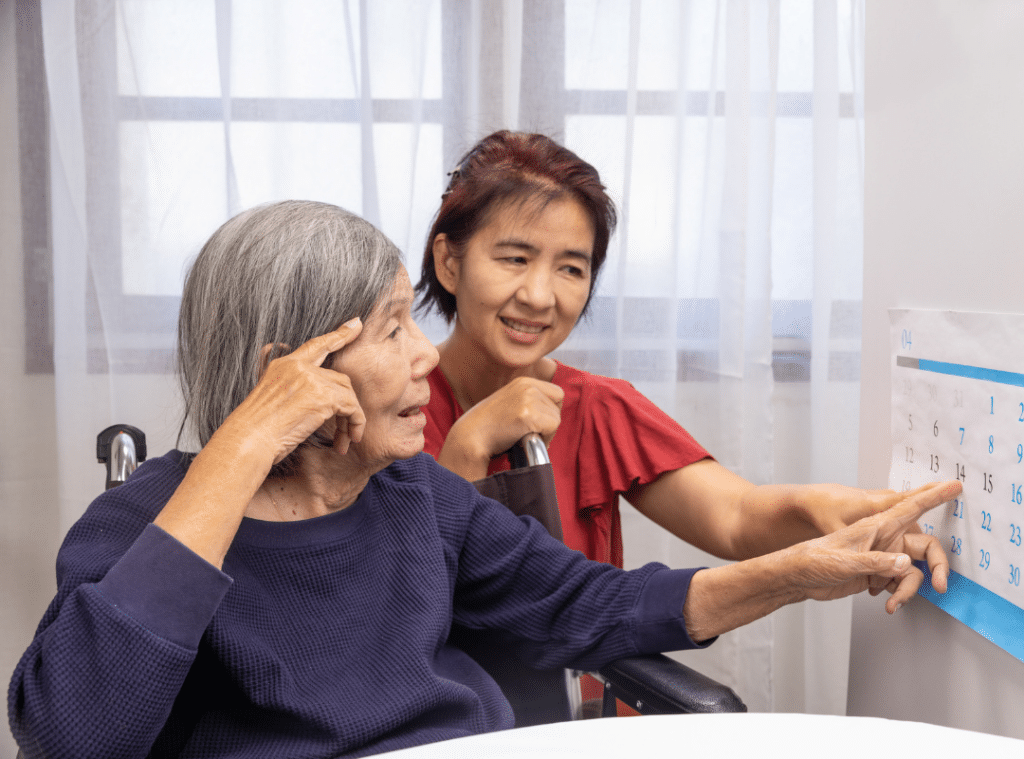Dementia Support: Tips for Caregivers to Promote Nutrition and Well-being
When a loved one begins to experience cognitive changes, creating an environment that nurtures their well-being and nutrition is crucial. At Westmont of Santa Barbara, we understand the importance of individualized meal planning, which caters to their tastes and fosters a sense of joy during mealtime. You can enhance their overall health by involving them in the cooking process and ensuring proper hydration. But what strategies can you implement to make these moments more meaningful and enjoyable? Exploring these approaches can significantly improve their daily lives and yours.
Importance of Nutrition
Nutrition plays an essential role in the overall well-being of individuals living with dementia, and it’s fundamental for caregivers to prioritize a balanced diet. As a caregiver, you may face challenges in ensuring that the person you care for receives the right nutrients. Research shows that a diet rich in fruits, vegetables, whole grains, and lean proteins can help maintain cognitive function and overall health.
You should be aware that hydration is equally important, as dehydration can worsen confusion and cognitive decline. Simple strategies can make a significant difference, like keeping water readily available and incorporating hydrating foods.
Additionally, consider the individual’s preferences and dietary restrictions to make meals more enjoyable and appealing. Engaging them in meal preparation can also foster a sense of connection and purpose. Moreover, providing nutritional support can enhance their overall health and help manage age-related challenges.
To enhance your efforts, seek dementia caregiver support through local resources or support groups, where you can share experiences and gather practical advice.

Meal Planning Strategies
Guaranteeing balanced meals can feel overwhelming, especially when caring for someone with dementia.
However, meal planning can simplify your routine and enhance nutrition. Here are some effective strategies:
- Create a weekly menu: Write out meals to minimize last-minute decisions and guarantee variety.
- Involve your loved one: Let them help choose meals and snacks. This can increase their interest in food.
- Focus on easy-to-eat foods: Opt for soft textures, like mashed potatoes, smoothies, or baked fish, which are easier to handle.
- Batch cook and freeze: Prepare meals in advance and store them. This saves time and reduces daily stress.
- Use dementia resources for family members: Explore local organizations or online platforms for recipes tailored to dietary needs.
Incorporating tailored dietary plans into your meal preparation can further enhance the nutritional value and relevance of the meals you provide.

Hydration and Health
While it might seem simple, maintaining proper hydration is essential for the health and well-being of individuals living with dementia. Dehydration can lead to confusion, increased fall risk, and even hospitalization. As a caregiver, you play a pivotal role in monitoring fluid intake. Here are some helpful tips to guarantee hydration:
| Drink | Benefits | Serving Suggestions |
| Water | Essential for bodily functions | Offer regularly throughout the day |
| Herbal Tea | Soothing and hydrating | Serve warm or iced, sweetened lightly |
| Broth | Nutrient-rich and comforting | Use in soups or as a warm drink |
| Fruit Smoothies | Tasty way to hydrate | Blend fruits with yogurt or milk |
| Juice (100% fruit) | Provides vitamins | Limit to one serving per day |
Engaging with a dementia caregiver support group can provide additional strategies and encouragement. Remember, hydration isn’t just about drinking fluids; it’s about fostering a nurturing environment that encourages your loved one to enjoy their beverages. Regularly check in with them and make it a pleasant part of their day. Additionally, incorporating fiber-rich foods into their diet can help maintain overall digestive health, which is crucial for those experiencing dementia.

Engaging Eating Experiences
Creating engaging eating experiences can greatly enhance the quality of life for individuals living with dementia. By making mealtime enjoyable and stimulating, you can foster a sense of normalcy and connection. Here are some tips to create those engaging experiences:
- Colorful Plates: Use vibrant dishes and utensils to make the meal visually appealing.
- Aromatherapy: Incorporate familiar scents from favorite dishes to evoke memories and enhance appetite.
- Interactive Meals: Encourage participation in meal preparation, like stirring or arranging food, to promote engagement.
- Music Background: Play soft music or songs from their past to create a comforting atmosphere during meals.
- Themed Dining: Organize meals around cultural or seasonal themes to spark interest and conversation.
Participating in dementia support groups can also provide valuable insights and ideas on creating these experiences. Special diets can help improve cognitive function and overall well-being, making mealtime even more beneficial for your loved one.
Sharing with other caregivers can help you discover new techniques and approaches that resonate with your loved one.

Resources for Caregivers
Steering the journey of caregiving for someone with dementia can feel overwhelming, but you’re not alone. Numerous resources are available to provide the dementia support you need. Start by exploring local support groups where you can connect with others who share similar experiences. These groups can offer invaluable emotional comfort and practical advice.
Don’t overlook the benefits of professional help. Geriatric care managers and healthcare providers can guide you in accessing appropriate services tailored to your loved one’s needs. Additionally, consider respite services to give yourself a break while ensuring your loved one is cared for.
Visit national organizations like the Alzheimer’s Association for educational programs and crisis helplines—accessible 24/7 for immediate support.
Local Area Agencies on Aging can also connect you with essential community resources.
By prioritizing nutrition and hydration, you can make a meaningful difference in the lives of those with dementia at Westmont of Santa Barbara. Research shows that personalized meal plans and engaging dining experiences can greatly improve their overall well-being. Remember, small changes—like using colorful plates or involving patients in meal prep—can spark joy and stimulate appetite. As a caregiver, your efforts not only nourish their bodies but also strengthen your bond, fostering moments of connection amidst the challenges of dementia. For more information, feel free to contact us at 805-845-4921.
Discover the level of care you or your family member requires. What Level of Care Do You Need?
Frequently Asked Questions About Dementia
What is the number one trigger for dementia behavior?
The primary trigger for dementia-related behaviors is often unmet needs or discomfort, such as pain, hunger, or the need for reassurance. Environmental changes or overstimulation can also play a significant role in triggering agitation or confusion.
What support is available for those with dementia?
Support for individuals with dementia includes professional care, memory care programs, and community resources such as support groups and respite care. Families can also access education, counseling, and tools to help manage symptoms and enhance the quality of life for their loved ones.
What are the 8 stages of dementia?
The 8 stages of dementia are a detailed framework based on the Global Deterioration Scale, ranging from normal aging (Stage 1) to very severe cognitive decline (Stage 8). These stages outline the progression from mild forgetfulness to the loss of basic physical abilities.
What is the 2-finger test in dementia?
The 2-finger test in dementia is an informal method where a caregiver checks if the individual can hold up two fingers when asked, assessing basic cognitive and motor functions. It is often used as a quick, non-diagnostic screening for potential cognitive impairment.








